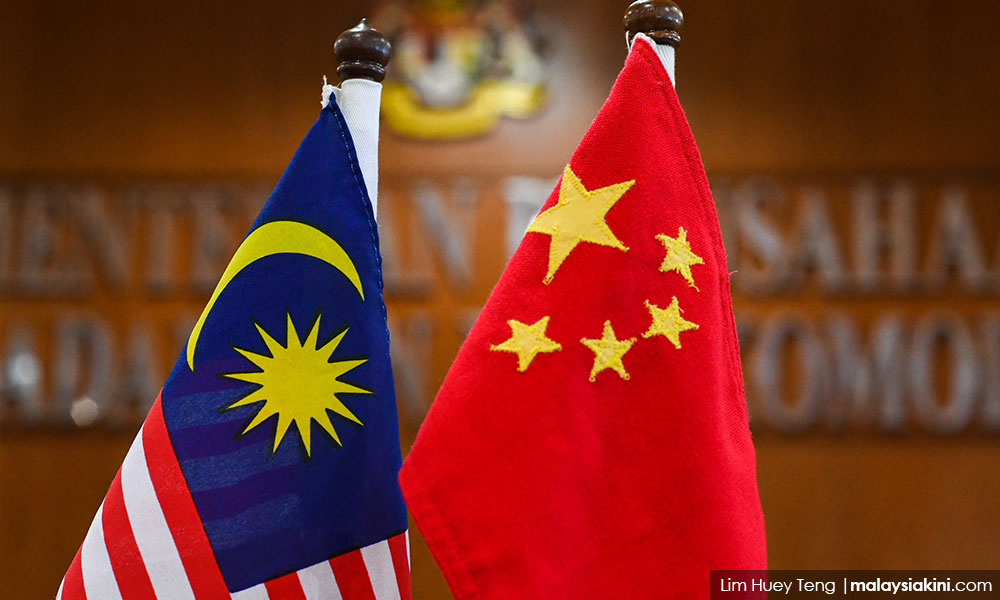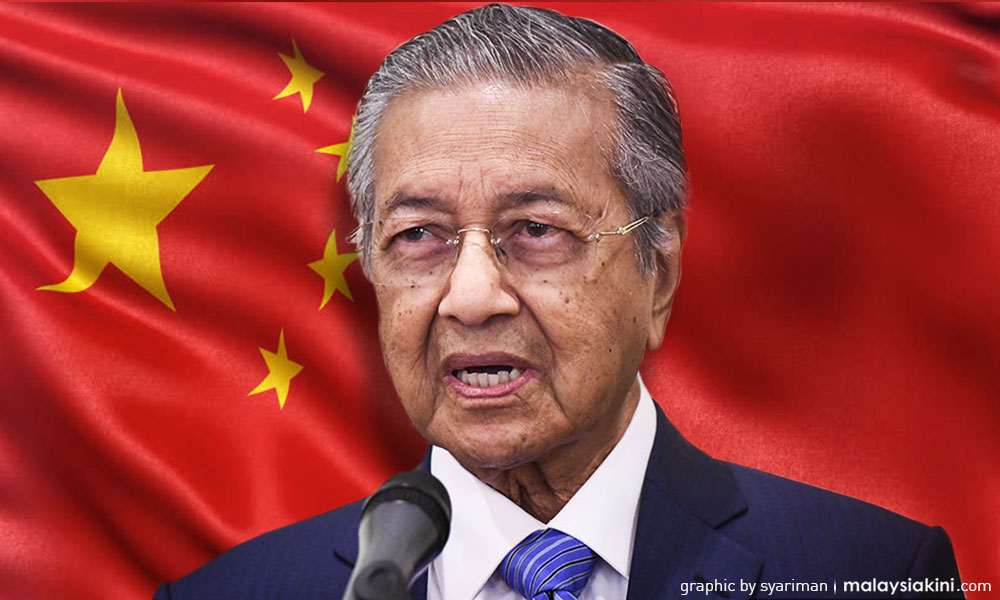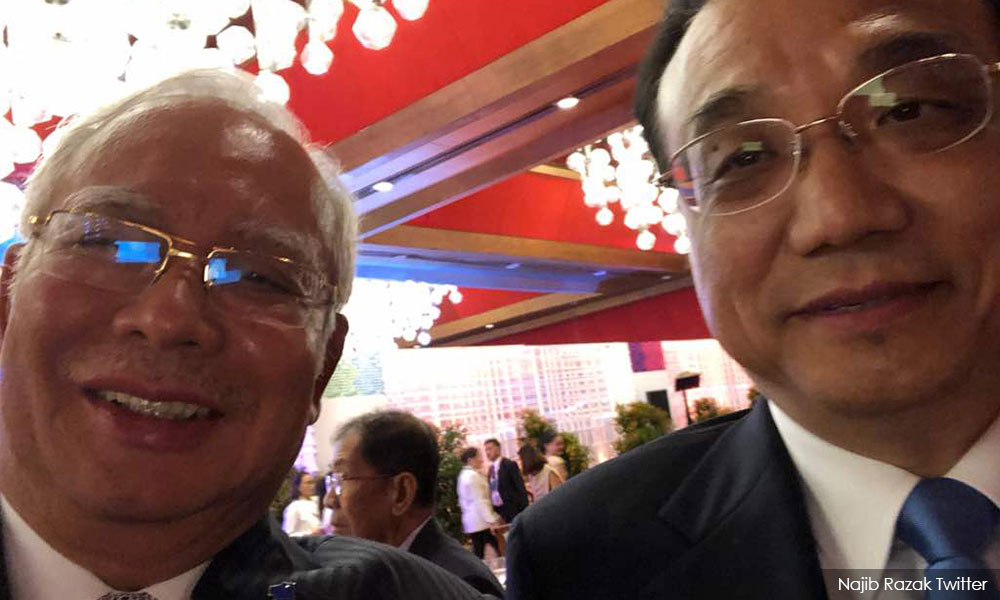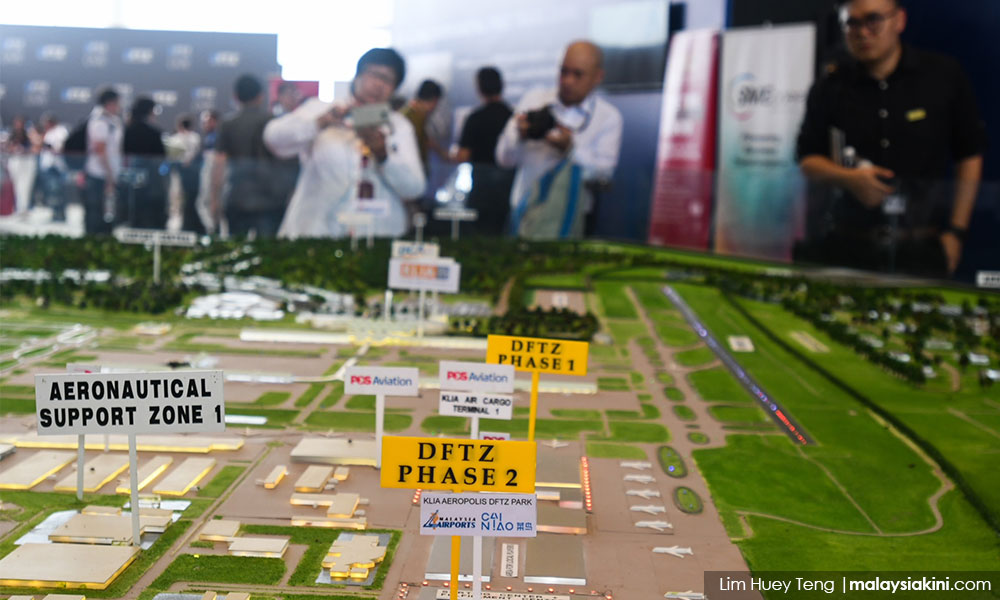
There was a time when the Sino-Malaysia relationship was the gold standard of Southeast Asia. Why was this the case?
First of all, great powers like the US had begun to acknowledge China in 1971.
By recognising the People's Republic of China (PRC) in 1971 as the “true” representative of mainland China in the United Nations (UN), it triggered a strategic turn across the world.
China, not Taiwan (otherwise known as the Republic of China), became a permanent member of the United Nations' Security Council (UNSC), thus holding the much-valued veto power. In a flash, China was catapulted to the top.
It became one of the five key members of the highest decision-making system of the international order.
China, in other words, acquired a final say in everything ranging from war to economic sanctions, which it exercised judiciously either by blocking other members of the security council from going to war or staying neutral on the side.
Malaysia cannot take credit for all of China's foreign policy achievement since the 1970s of course. Nor does it want to.
But friends are there to remind each other how they each made it to the top. As it is, China is now at the apex of the international hierarchy by virtue of what Malaysia was able to do.
By opening a pathway for China to be a key power in the UN, indeed at great risk to Malaysia's own relationship with Indonesia, which was then still suspicious of Beijing's overall intent in Southeast Asia, especially Indo-China, Malaysia allowed China to inch its way forward.
Indeed, Beijing received more recognition in the region after the end of Cold War in 1989 than anywhere else.
Malaysia’s role
The groundwork was done in the 1970s and 1980s in Southeast Asia first. Malaysia and the Association of Southeast Asian Nations (Asean), in other words, cut China a lot of slack. In fact, if one compares the progress between Southeast and Northeast Asia, it is clear that China gained handsomely from its relationship with Southeast Asia first.
China only recognised South Korea in 1993, much to the chagrin of North Korea. But between 1970s and 1990s, China had already known how to work with Southeast Asia.
It was due to such sudden, almost belated, recognition of South Korea that Pyongyang turned to developing its own nuclear weapon(s), and subsequently, its much-dreaded interballistic missile system, to counterbalance the Chinese shock.
In Southeast Asia, China faced no such problem from Indonesia or even Vietnam. Why? Well, partly because Malaysia constantly played down the China threat, as was mentioned by Prime Minister Dr Mahathir Mohamed time and again.
Thus, China was recognised by Asean in 1993 as a key member of the Asean Regional Forum (ARF) too - the region's only multilateral institution that addresses the security issues of the Indo-Pacific region to date.
Based on China's constructive participation in ARF too, China became a member of Asean Plus Three in 1997, and, in turn, theEast Asian Summit in 2005.

With the support of Malaysia, China also spawned the Boao Forum for Asia (BFA) on Hainan Island in 2001, which sought to model itself on the World Economic Forum in Switzerland.
Indeed, the first secretary-general of BFA was Ajit Singh, the first Malaysian to be appointed as the secretary-general of Asean in 1992 with the rank of a minister too.
Failing to work with China
But despite the effort of former prime minister Najib Abdul Razak to rekindle the diplomacy of his late father Tun Abdul Razak, the second prime minister of Malaysia, Najib made one fatal error: he did not work with China as many assumed.
Najib worked for himself. When Najib went to China in November 2017, for instance, he was encouraged by Premier Li Keqiang (picture below, right) not to root for Wanda Group, especially its chairperson and CEO Wang Jianlin.
Premier Li, with or without the direct advice of President Xi Jinping, had his reasons.
China was not happy with Wanda Group's global expansion abroad, especially in acquiring an entertainment chain in the United States.
As early as February 2017, for example, the Nikkei Asia Review had reported the failure of Wang, who was then China's richest man due to his vast property holdings, to secure the permission of Beijing - including Xi - to buy US entertainment production company Dick Clark Productions for US$2 billion.
The deal fell through and Wanda Group was never the same. Li, in other words, was offering his advice to Najib in kind: Do not work with Wanda Group when Beijing was, in fact, forcing Wang to sell more of his stakes in China.
Indeed, in December 2017, Beijing asked Wang to sell all 79 hotels belonging to Wanda Group to raise some US$9 billion in return.
Najib did not take Li's advice. Infatuated with the likelihood of securing Wanda Group as an anchor tenant in Bandar Malaysia, Najib even ditched Iskandar Waterfront, a Malaysian company based in Johor.

A new opportunity
China now has a new opportunity to make a strategic start to the Sino-Malaysia relationship, though. First and foremost, Malaysian tycoon Robert Kuok has the confidence of both Mahathir and President Xi Jinping.
Any outstanding issue can be ameliorated and handled by both statespersons with the support of the good office of Kuok, who is a patriotic Malaysian based in Hong Kong.
Second, Mahathir has affirmed the importance of working closely with China, and pledged to do so in his interview in South ChinaMorning Post on June 19, 2018, a newspaper owned by Jack Ma, who is now China's richest man.
Third, to the degree the Sino-Malaysia relationship needs to be institutionalised further, such a mechanism can begin with the chairperson of the Council of Eminent Persons (CEP) Daim Zainuddin and Finance Minister Lim Guan Eng's impending trip to China.
While the mission is to find out how and why the Sino-Malaysian agreements have been lopsided, often favoring Chinese contractors, to the degree some payments are all made in China, even though the projects are in Malaysia, the trip provides a good opportunity for Beijing to work with Daim and Lim on how to create a stable win-win relationship.
Such a relationship can be based on China and Malaysia's respect for the importance of the Belt and Road Initiative (BRI). It can also be guided by the joint membership of China and Malaysia in the Asia Infrastructure Investment Bank (AIIB), Asian Development Bank (ADB), and World Bank.
Both countries know that Southeast Asia faces a serious infrastructure deficit to the tune of US$1.5 trillion per year right now. Such loans, if denominated in Chinese renminbi with low-interest rates, can do much to enhance the human, institutional and infrastructure connectivity of Asean.
If Asean's gross domestic product (GDP) grows collectively, it can have up to 700 million middle-class consumers by 2030, which is twice the number of middle-class consumers in mainland China currently.
The world's largest economy in terms of power purchasing parity (PPP), for the lack of better word, would be joined at the hips with the world's sixth largest GDP, which is Asean.
China, in fact, does not have to worry about problems afflicting it, such as desertification, environmental degradation, and depopulation due to the greying of its people by 2040, which is just 22 years away.
Using Malaysia as a second home, China does not have to confine itself to Forest City in Johor, which is supposed to cost close to US$100 billion. Nor does China need to build the East Coast Rail Link that spans 688 kilometres since China is always welcome to traverse the sea routes in the Straits of Malacca, even the Straits of Johor; especially if the old Malaysia and Singapore causeway can be removed and built to accommodate larger and bigger ships.
To be sure, the strategic importance of the Sino-Malaysian relationship is obvious in other ways too. The Digital Free Trade Zone (DFTZ) need not be under the monopoly of Alibaba alone.
JD.com, which is the fastest e-commerce giant in China, has formed a strategic partnership with Amazon.com. Both can be the second and third giant in the same area, catering and serving the huge clientele in Asean.

Baidu, and Tencent Holdings of China, which have established a presence in the US, can operate freely in Malaysia and Asean writ large - making greater use of the Asean Free Trade Area, DFTZ, and Malaysia-Singapore-Batam triangles too, potentially the Penang-Medan-Hat Yai trading centres as well.
Together, Malaysia and China can move into a new era operationalised by automation, an app-driven economy, artificial intelligence and data analytics derived from highly-qualified algorithms.
On the South China Sea, Malaysia and China can work together to jointly develop the contested areas, which are only a handful, creating a major opening for Brunei, Vietnam and the Philippines to do the same.
Pregnant with promise
Indeed, no one is saying that the Sino-Malaysian relationship can be restored to its old glory with a magic wand. But the possibilities are there.
In fact, the relationship is pregnant with nothing but actionable and tangible promise, the likes of which have seen Sino-Malaysian investments growing at exceptional speed.
But the scale of the growth cannot be driven by real or potential corruption in China too late. The latter would result in what one research at Belfer Center for Science and International Affairs within the John F Kennedy School of Government at Harvard University called "debt book diplomacy."
A receiving country would be piled with debt after debt, which it would find itself unable to repay, thus living in sheer servitude to the other. This is not a sustainable relationship at all, and China should not undertake it with any decency in the least bit.
China itself has witnessed first-hand the many devastating effects of such "uneven agreements", that resulted in the “Century of Humiliation” at the hands of the West.
Indeed, if President Xi Jinping's corruption crackdown has resulted in the arrest of some 300,000 people, Beijing should appreciate what Mahathir is trying to do now, as represented by what Daim and Lim hope to achieve in their coming China trip, which is to find a middle way to all the lopsided agreements. A justly-balanced station, so to speak.
The electoral upset of May 9, 2018 in Malaysia is no different from the amazing May 1 student movement of China against the victors of the First World War in 1919. The latter tried but failed to carve China into pieces, resulting in the birth of the new China.
The Malaysian voters have risen up, and spoken their minds. The leadership and literati in China should listen, and adjust their sails accordingly; especially when the howls of reforms have started to blow strongly in the winds.
To Mahathir, Daim, and Lim: "Yuàn ni zài zhōngguó de tánpàn yīqiè shùnlì" (May your negotiations in China proceed smoothly).
RAIS HUSSIN is a supreme council member and policy and strategy bureau head of Bersatu. -Mkini



No comments:
Post a Comment
Note: Only a member of this blog may post a comment.